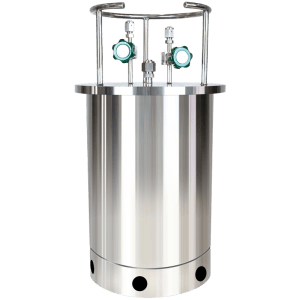Introduction
Trichlorosilane (Cl3HSi) stands as a vital compound in various industries, particularly in the production of semiconductors and solar cells. The reliability and quality of Trichlorosilane directly impact the efficiency and performance of end products. Therefore, selecting a trustworthy Trichlorosilane (Cl3HSi) supplier is paramount. In this comprehensive exploration, we delve into the essential quality standards and certifications to consider when choosing a Trichlorosilane supplier.

International Quality Standards for Trichlorosilane
- ISO (International Organization for Standardization) Certification
ISO certification signifies adherence to globally recognized quality management standards. For Trichlorosilane suppliers, ISO 9001 certification is particularly relevant, demonstrating a commitment to quality management systems that ensure consistency and reliability in production processes.
- ASTM (American Society for Testing and Materials) Standards
ASTM standards provide guidelines for the testing and characterization of materials, including Trichlorosilane. Compliance with specific ASTM standards ensures that the Trichlorosilane supplied meets defined quality criteria, enhancing confidence in its suitability for intended applications.
Industry-Specific Certifications
- Semiconductor and Electronics Industry Standards
Suppliers catering to the semiconductor and electronics industry should possess relevant certifications such as SEMI standards. These standards address specific requirements for materials used in semiconductor manufacturing, including purity levels and trace impurity limits.
- Solar Energy Industry Standards
In the solar energy sector, certifications such as IEC (International Electrotechnical Commission) standards are crucial. These standards ensure the quality and reliability of materials used in solar cell manufacturing, including Trichlorosilane. Compliance with IEC standards instills trust in the supplier’s ability to meet stringent industry requirements.
- Safety and Handling Certifications
Occupational Safety and Health Administration (OSHA) Compliance
OSHA compliance is essential for ensuring the safety of workers involved in Trichlorosilane handling and storage. Suppliers must adhere to OSHA regulations governing hazardous chemicals to minimize the risk of accidents and ensure a safe working environment.
- Hazardous Materials Handling Certifications
Training and certifications for hazardous materials handling are crucial for personnel involved in the transportation and storage of Trichlorosilane. Certifications such as HAZWOPER (Hazardous Waste Operations and Emergency Response) ensure that workers possess the necessary skills and knowledge to handle hazardous materials safely.
- Environmental and Sustainability Certifications
Environmental Management System (EMS) Certification
EMS certification demonstrates a Trichlorosilane (Cl3HSi) supplier’s commitment to environmental stewardship and sustainable practices. Suppliers with EMS certification implement robust environmental management systems to minimize environmental impact and ensure compliance with regulatory requirements.
- Eco-labels and Green Certifications
Eco-labels and green certifications validate a supplier’s commitment to sustainable production practices. Certifications such as the Green Seal or EcoLogo indicate that Trichlorosilane production processes meet stringent environmental standards and prioritize resource efficiency and waste reduction.
Supplier Qualification and Audit Process
- Supplier Qualification Criteria
When evaluating Trichlorosilane suppliers, consider factors such as experience, reliability, and track record. Suppliers with a proven history of delivering high-quality products and meeting customer expectations are more likely to provide consistent and reliable Trichlorosilane.
- Audit Process and Compliance Verification
Conducting on-site audits and inspections allows buyers to verify Trichlorosilane (Cl3HSi) supplier compliance with quality standards and certifications. Audits provide insight into the supplier’s manufacturing processes, quality control measures, and adherence to regulatory requirements, helping buyers make informed decisions.
Conclusion
Selecting a Trichlorosilane supplier is a critical decision that can significantly impact product quality and performance. By prioritizing Trichlorosilane (Cl3HSi) suppliers with relevant quality standards and certifications, buyers can ensure the consistency, reliability, and safety of Trichlorosilane supplied for their manufacturing processes.




